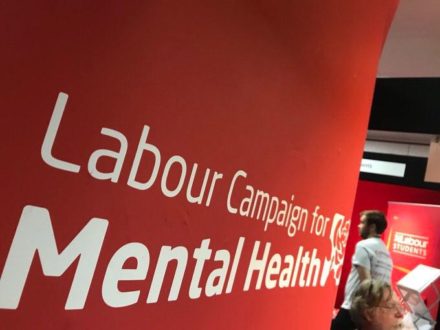
This weekend, Theresa May promised to give the NHS a £20bn increase in spending over the next five years, amounting to a 3.4 per cent increase in the overall health service budget, thanks to a supposed “Brexit dividend”.
There are very few people who believe an increase in spending won’t help the NHS to tackle some of its more urgent crises, but money alone will not solve the issues the service now faces. Chronic underfunding over the course of the last eight years has driven mental health services to become more generic, as a narrowed focus on providing patients with “quick-win” treatments has eclipsed the need for long-term solutions to complex and varied issues.
These are just some of the key findings from the Labour Campaign for Mental Health’s consultation on the NHS’ five-year forward view for mental health, developed with service users, mental health professionals and campaigners at the beginning of this month.
For the uninitiated, the five-year forward view is a plan developed in 2014 for the NHS that details how the service should adapt over the period between 2015-2020 to cope with recent changes in demand. To quote its own summary, it aims “to close the widening gaps in the health of the population, quality of care and the funding of services”.
In particular, the policy document sets out key areas for improvement, such as enhancing the capability of local authorities to show leadership on public health issues and calls for true parity of funding between physical and mental health. These aims have not been met.
That’s not to say there haven’t been improvements in the NHS as a result of this plan – the increased attention given to perinatal and eating disorder services has been vital in improving the support service users can receive.
But our consultation, developed in response to a callout from the all-party parliamentary group on mental health for observations on the five-year forward view, reveals a systemic degrading of mental health services as a result of the Conservatives’ callous policy of managed decline.
We have found that the erosion of community-based services, such as Sure Start, has adversely affected mental health service users because when one form of support is removed, it is not replaced with a like-for-like service.
There is also a growing concern among mental health professionals that specialist mental health capability has been deliberately reduced in favour of more generic services, largely because they can be cheaper and are more likely to hit their government-mandated targets.
As long as the Tories are still in charge of our NHS, it is unlikely these fundamental issues will be resolved. While the relatively modest implementations from the five-year forward view are still unmet, mental health service users are unlikely to feel the benefit of Theresa May’s cash windfall, regardless of where it came from.
If you would like to learn more about our consultation, sign up to our mailing list or get involved in our campaign, do get in touch with us at [email protected] or chat to us on Twitter.
James Calmus works with the Labour Campaign for Mental Health and is a member of the London Young Labour executive committee.




More from LabourList
Letters to the Editor – week ending 15th February 2026
‘Labour council candidates – it’s tough, but all is not lost’
‘Labour won’t stop the far right by changing leaders — only by proving what the left can deliver’